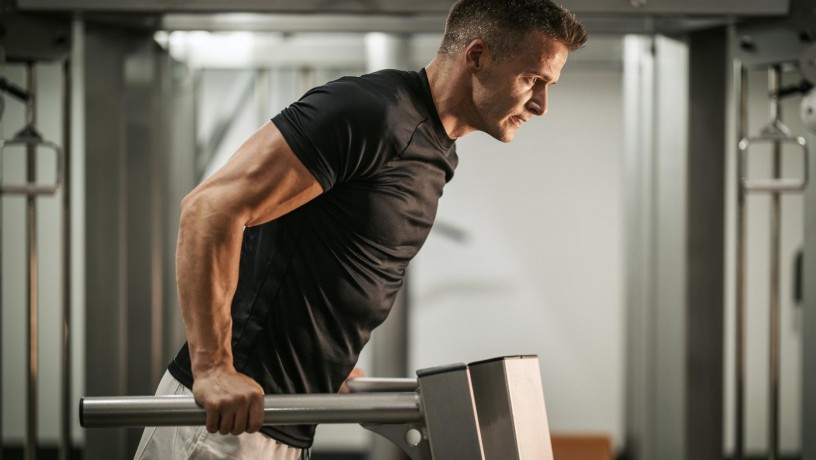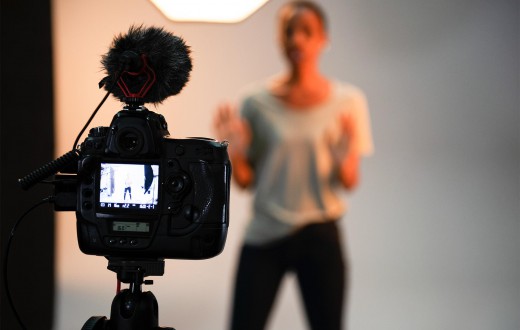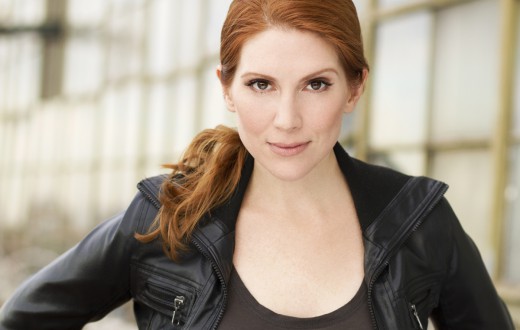As an actor, achieving peak performance requires more than just talent and skill. It takes consistent effort and dedication to develop habits that support your craft.
What is a habit?
A habit is a routine behavior or action that is performed repeatedly and often unconsciously. Habits are formed through repeated actions that eventually become automatic, requiring little or no conscious effort to carry out. Habits can be either good or bad, depending on their impact on our lives and goals. Good habits can help us achieve our goals and improve our lives, while bad habits can hinder our progress and hold us back. The key to forming good habits is to start small, stay consistent and be patient with the process of building new habits.
I’m going to give you an example of a habit that you may already do and compare it to acting.
Ready? Here we go… working out.
Yep, that simple.
When you’ve made the conscious decision to stay physically fit, you’ve made a commitment to yourself. Going to a gym or even figuring out what exercise you want to do at home can be overwhelming. Well, so can show business.
Start Small
Working Out: Begin by setting small, achievable goals for yourself. For example, commit to working out for 15 minutes each day, rather than trying to exercise for an hour right from the start. This will help you establish a consistent routine and build momentum over time.
Compare to Acting: Start with small roles, get used to being on set. Maybe even do a couple of background / extra gigs to familiarize yourself with how things progress during the day.
Create a Plan
Working Out: Make a plan for when, where and how you will work out. This can include scheduling specific times for exercise, choosing a gym or workout space and selecting activities that you enjoy and are manageable for your fitness level.
Compare to Acting: Build your skills. Take acting classes, workshops and attend industry events to improve yourself and network with industry professionals. Utilizing this plan will point you in the right direction.
Track Your Progress
Working Out: Set your goals and keep track of your workouts in a journal or fitness app. Seeing your progress and accomplishments can help you stay motivated and committed to your fitness routine.
Compare to Acting: Tracking progress involves keeping a record of your auditions, rehearsals, performances and feedback from directors or fellow actors.
Flexibility and Adaptation
Working Out and Comparison to Acting:
Both working out and acting require a degree of flexibility and adaptation. Just as your body may respond differently to various exercises, your performances as an actor may require adjustment and fine-tuning in response to feedback or changes in the script or production.
Working Out: Working out with a friend or family member can help keep you accountable and motivated. Plus, it can be more fun to exercise with a partner.
Compare to Acting: Having an accountability partner can help keep you motivated to work on your lines, provide feedback and support and offer a fresh perspective on your performances.
There are also some key differences between having a workout buddy and an accountability partner. In the case of working out, having a buddy can help make the experience more enjoyable and social. You can work out together, have conversations and push each other to achieve your fitness goals. On the other hand, as an actor, having an accountability partner may be more focused on the craft of acting itself. You might work on scenes together, practice exercises and discuss your progress in a more professional context.
Reward Yourself
Working Out: Treat yourself for reaching milestones and accomplishing your fitness goals. This can be as simple as a small treat, such as a favorite food or new workout gear.
Compare to Acting: You might choose to reward yourself by treating yourself to something you’ve been wanting for a long time, such as a nice meal, a new piece of equipment or a vacation.
You get the picture. So now, let’s schedule your makeover! (By the way, if you ever try to schedule a makeover for an American Girl doll, be prepared to wait in line for hours and spends lots of money. If you don’t know what an American Girl doll is, one day you’ll come across one and that will trigger you to pass this article along to your friends and co-workers.)
Here are 10 habits for peak performance:
1. Practice and rehearse regularly to improve your skills and stay sharp.
2. Stay physically fit: You need to be in good physical shape to perform well on stage or screen. Exercise regularly and maintain a healthy diet.
3. Stay hydrated: Drinking enough water is important for maintaining mental and physical performance.
4. Get enough sleep: Make sure to get enough rest each night to perform at your best during the day.
5. Set clear goals: Define specific, measurable, achievable, relevant and time-bound goals to work towards and track your progress.
6. Develop a positive mindset: Positive self-talk and visualizing success can help you overcome challenges and maintain motivation.
7. Stay focused: Concentrate on your current task and avoid distractions.
8. Stay organized: Keep track of your auditions, rehearsals, and other acting commitments to avoid double booking and stay on top of your schedule.
9. Collaborate effectively: Be a team player and work well with directors, producers and other actors.
10. Take constructive feedback: Be open to feedback from others and use it to improve your skills and performances.
BONUS HABITS
11. Continuously learn: Stay curious and seek out new experiences and skills to enhance your craft.
12. Network effectively: Attend industry events and make connections with other professionals to expand your opportunities.
13. Stay adaptable: Be open to new experiences and able to adjust to changing circumstances.
14. Manage stress effectively: Develop healthy coping mechanisms to manage stress and anxiety.
15. Develop a strong work ethic: Be dedicated and committed to your craft, and consistently put in the necessary work.
16. Cultivate empathy: Develop a strong sense of empathy to better understand and connect with your characters.
17. Seek out diverse perspectives: Expose yourself to diverse perspectives and experiences to expand your creative range.
18. Communicate clearly: Be able to effectively communicate your ideas and emotions to your audience.
19. Stay true to yourself: Stay authentic and true to yourself, and don’t compromise your values or beliefs for the sake of a performance.
20. Embrace failure: Learn from your failures and use them as opportunities for growth and improvement.
By establishing consistent routines, staying disciplined and prioritizing self-care, you can maximize your potential and increase your chances of success. From regular practice and training to maintaining a healthy work-life balance, these habits can help you stay focused, motivated and mentally and physically prepared for your next performance. While the journey to peak performance may require hard work and dedication, the habits developed along the way can ultimately lead to a more fulfilling and successful career.








